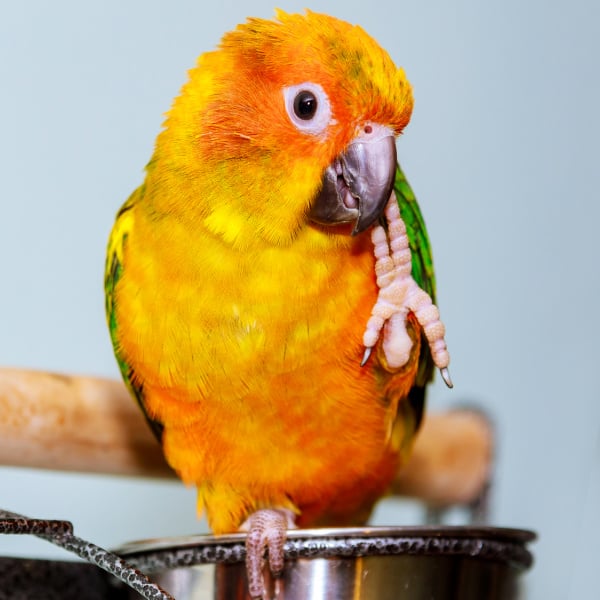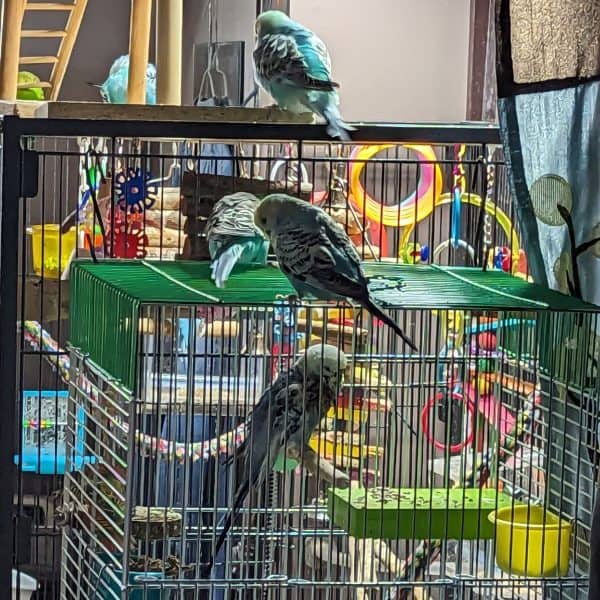Last Updated on by Mitch Rezman
Joanne A. Relates,
I recently saw a forum thread “Conure with sore foot help”.
What are your thoughts?
OK, Joanne,
There are Causes & There are Actions:
Unsuitable Perches / Standing & Walking Platforms ~ Cause
Causes
- Abscesses are frequently caused by unhealthy “perching” conditions, such as plastic perches, sharp-cornered perches, the standard perches that tend to come with cages of uniform diameter, or wire floors.
- If unsuitable perches or platforms are the cause, a small reddened area, or sometimes a small shiny patch, can usually be seen on the foot.
Cause of action or preventative measures
Provide a bird with natural perches with different circumferences and textures
I think this really needs to be elaborated upon because it’s very important. Also mentioned pedicure concrete perch being used. Someone said that that should be removed from the cage. I respectfully disagree with that which I’ll get to in a moment.
First I want to back up and talk a little bit about a bird’s anatomy. It’s important to understand that birds are on their feet 24/7 and unless in flight and most of our birds are never in flight, they are on their feet 24/7.
More importantly, we need to know that most birds have something called a flexor tendon in both their legs. This tendon enables a bird to lock its foot or both feet around a tree branch thus allowing them to literally sleep on their feet (or foot) without falling off a tree (or perch).
If you and I are on our feet long we begin to shift positions – a bird’s feet are locked down. Birds also have very few nerves in their feet so the threshold for pain tends to be much higher and may not be self-aware of a foot injury until it becomes more severe.
We’ve seen many birdcages with some sort of pedicure perch used as sleeping perch. This has a high potential for injury to your bird’s foot. But don’t toss it out just yet.
I suggest you move it to the inside of the cage door as illustrated here. The thinking behind this setup is that when it comes time to let your bird out he or she will come down to this perch and do a happy dance. The happy dance is enough time to groom nails and maybe a rub or two on the beak. Now you’re made good use of a pedicure perch.
I suggest all parrot cages, have 3 to 4 types of perches. This will cause your bird’s feet, to constantly be moving around different surfaces, challenged if you will.
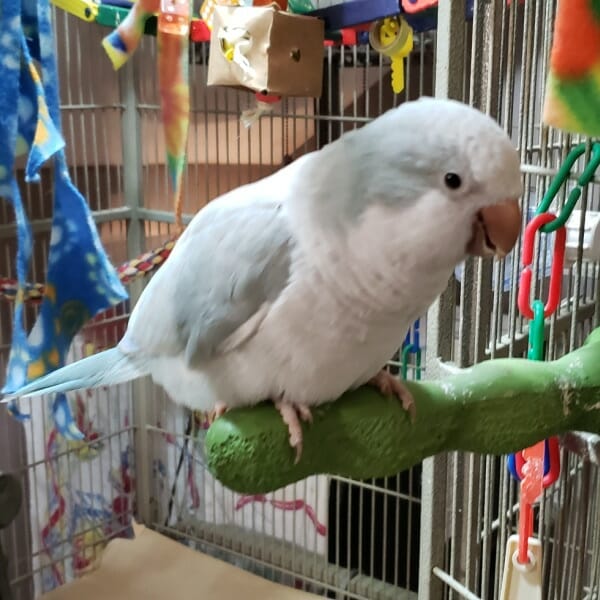
The sleeping perch should be rigid but soft. We like Booda perches because after selling them for many years we know that they are both durable and washable. More importantly, they are soft on the bird’s feet. As a side note, they are great for parrots who may be plucking because it gives them something else to peck at.
Your cage probably came with a solid dowel perch – those are fine. But in addition to that hard perch we suggest is a Coffee wood perch.
The irregular surface really helps exercise your bird’s feet.
Author Profile
Latest entries
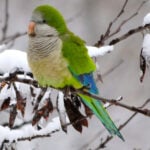 The Traveling BirdJune 26, 2025Can You Name 5 Parrot Species That Are Living Wild in the USA?
The Traveling BirdJune 26, 2025Can You Name 5 Parrot Species That Are Living Wild in the USA?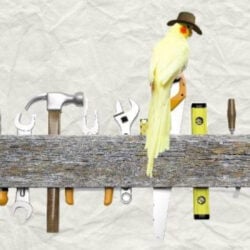 Bird BehaviorJune 26, 2025How is it Parrots Are Problem Solvers Social Animals and Even Use Tools?
Bird BehaviorJune 26, 2025How is it Parrots Are Problem Solvers Social Animals and Even Use Tools?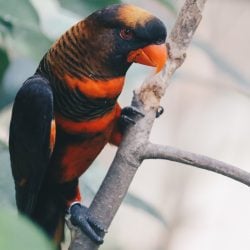 Bird & Parrot AnatomyJune 25, 2025How a Tiny Chemical Modification Makes Parrots Nature’s Living Paintings
Bird & Parrot AnatomyJune 25, 2025How a Tiny Chemical Modification Makes Parrots Nature’s Living Paintings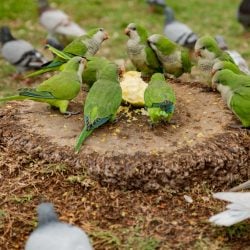 PigeonsJune 20, 2025How Do Parrots Thrive in Cities Outside Their Native Habitats?
PigeonsJune 20, 2025How Do Parrots Thrive in Cities Outside Their Native Habitats?
